Long March Project — Ho Chi Minh Trail
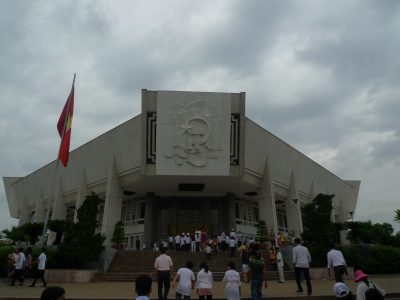
Stage I | Field Research & Curatorial Intent
Ho Chi Minh Trail
Time: 2008-2009
Location: Vietnam, Cambodia, Laos
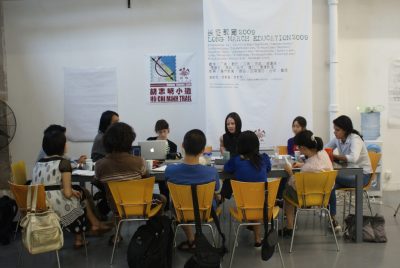
Stage II | Educational Residency
Ho Chi Minh Trail
Time: July , 2009
Location: Beijing
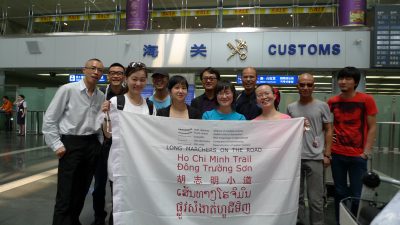
Stage III | The Journey
Ho Chi Minh Trail
Time: June 12, 2010 – July 3
Location: Vietnam, Cambodia, Laos, China
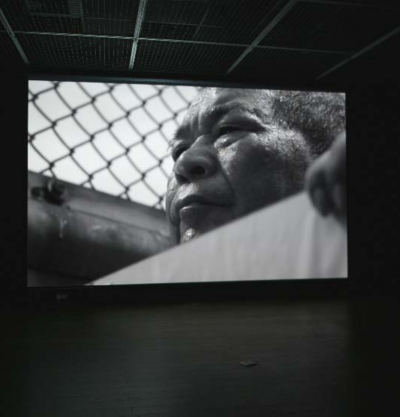
Stage IV | Rehearsal & Theatre
Ho Chi Minh Trail
August – December 2010, Long March Space, Beijing
October 2010 – January 2011, “Rehearsal”, 8th Shanghai Biennial, Shanghai Art Museum, Shanghai
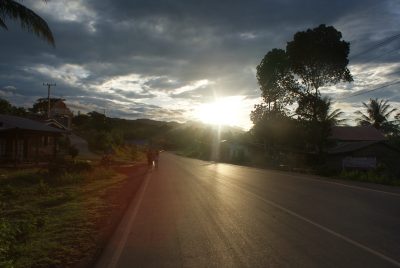
Thirteen Points from Participating Curators, Artists and Philosophers
Ho Chi Minh Trail
Time: 2010
Author: Curators, artists and philosophers who participated in “Long March Project – Ho Chi Minh Trail”
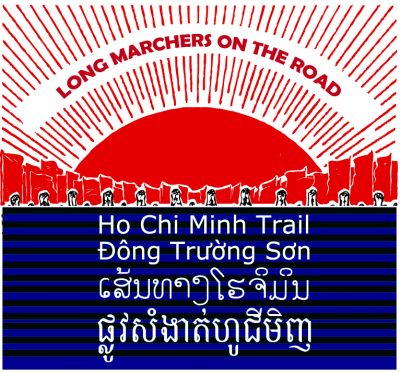
Participants & Chronology
Ho Chi Minh Trail
Time: 2006-2010
Participants & Chronology
Ho Chi Minh Trail
Time: 2006-2010

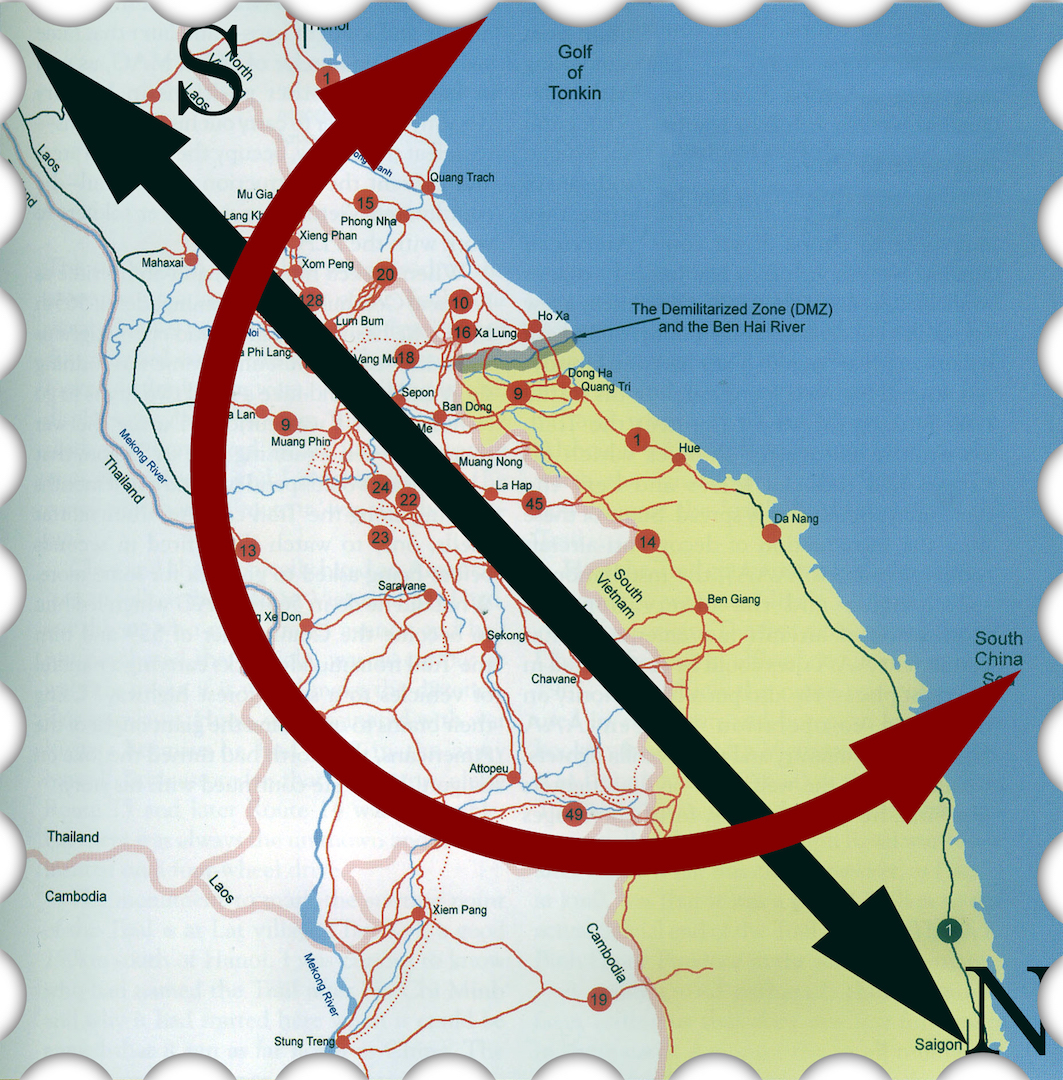
Participants
Thinkers & Artists
(The biographies were edited in 2010)
Johnson Chang Tsong-zung, is a curator, guest professor at the China Art Academy, art director of Hanart TZ Gallery, co-founder of the Asia Art Archive in Hong Kong, and co-founder of the Hong Kong chapter of International Association of Art Critics (AICA). He has curated Chinese exhibitions since the 1980s, pioneered the participation of Chinese artists in international exhibitions, and was instrumental in establishing the international image of Chinese contemporary art of the 1990s.
Margaret Chen studied Journalism (B.A.) at Fudan University, Shanghai, and Communications (M.Phil.) at the Chinese University of Hong Kong. After working at Shanghai Zendai Museum of Modern Art in 2007, she joined Ullens Center for Contemporary Art in Beijing and worked in the Education & Public Programs and Exhibitions Departments. In March 2010, she moved back to Shanghai to participate in the West Heavens Project.
Chen Chieh-jen is a renowned Taiwanese artist based in Taipei. In the 1980’s Chen emerged as a prominent figure of the Taiwanese art scene with his guerrilla-style performances and underground exhibitions. Since 1996, Chen has been working primarily in film and photography, seeking to re-examine forgotten historical memories of Taiwan hidden under the dominance of neoliberal rhetoric in Taiwanese society today.
Brian Doan is an artist and photographer based in Los Angelos. He received his MFA from Massachusetts College of Art, Boston and currently teaches photography at the Long Beach City College, Los Angelos. Brian was born in Vietnam and immigrated with his family to the United States of America in the late 1980s.
Gao Shiming is Executive Director of the School of Inter-Media Art, China Academy of Art. His subjects include visual culture research, contemporary art studies and curatorial practice. In the past few years, he has curated many exhibitions of academic standing, including the research project Edges of the Earth: The Migration of Asian Contemporary Art and Geo-politics, 2002-2004, The Yellow Box: Contemporary Art and Architecture in a Chinese Space, 2006, Farewell to Post-colonialism: the 3rd Guangzhou Triennial, 2008, and Rehearsal: the 8th Shanghai Biennale, 2010 and so on.
Liu Wei is an artist based in Beijing. His practice is uniquely varied; working in video, installation, drawing, sculpture, and painting, there is no stylistic tendency which ties his work together. Rather Liu perceives the artist’s function as a responsibility of unmitigated, uncensored expression, tied to neither ideology nor form. Throughout Liu’s work lies an engagement with peripheral identity in the context of wider culture; his works often describe a sentiment of excess, corruption, and aggression reflective of cultural anxiety.
Lu Jie is Chief Curator of Long March Project. He graduated in 1988 with a B.F.A. from the China Academy of Arts in Hangzhou, and in 1999 he received an M.A. in curating from Goldsmiths College, University of London. He has curated numerous contemporary art projects and exhibitions, including the following Long March projects, which were presented in various international locations: A Walking Visual Display (2002), The Great Survey of Papercutting in Yanchuan County (2004), Yan’an (2006), and No Chinatown (2007).
Lu Xinghua is an Associate Professor of Philosophy at the Academy of European Cultures, Tongji University, Shanghai, and Adjunct Professor of the Institute of Contemporary Art and Social Thought, School of Inter-Media Art, China Academy of Art. Lu has recently published a book called Shared Contingencies (2009).
Nguyen Nhu Huy is an artist, independent curator, and translator from Hanoi who currently lives and works in Ho Chi Minh City. In the early 2000’s he co-founded an online arts journal that had been instrumental in introducing foreign philosophy to the Vietnamese art community. In 2010, Huy founded an alternative art space ZeroStation in Ho Chi Minh City that emphasizes on art education and discourse.
Wang Jianwei is a pioneer of multi-media and conceptual art and a senior figure in China’s contemporary art scene. Academically trained as a painter and shifting his focus to multi-media installation in the late 80s. ‘Connection’ and ‘relationship’ have been the key phrases in Wang’s vocabulary. His work could be interpreted as an attempt to discover and expose the connection between beings, matters and concepts that may seem random on the surface. What he aspires to achieve is a kind of integration of knowledge in many fields that gives rise to his distinctive approach as an artist.
Wu Shanzhuan is a Chinese conceptual artist who has been active since the 1980s. He was the first artist in China to incorporate textual pop references into his work. Wu’s 1986 installation Red Humour laid the foundation for his idiosyncratic approach to painting, which forgoes imagery in favour of political jingoism, religious scripture, and advertising slogans.
Wang Jiahao is an artist and researcher of architecture and urban design. He is a candidate for Master of Architecture at China Academy of Art, Hangzhou.
Viet Le is a Ph.D. candidate in American Studies at Department of American Studies and Ethnicity, University of Southern California. Currently a senior fellow at the Center for Khmer Studies in Phnom Penh, he studies memory, trauma, Vietnamese studies, Asian-American Studies, visual culture (art, mass media, film), ethnography, race and ethnicity, queer studies, HIV/AIDS, and transnationalism.
Xu Zhen graduated from the Shanghai Arts and Crafts Institute in 1996 and since then has sought to push the boundaries of social assumptions, cultural anomalies, and the imagined world and its actual relation to reality, to name but a few of the constructs with which he humorously critiques contemporary life. He co-founded Shanghai’s artist-run art space BizArt in 1997 and founded Shanghai-based conceptual cultural production company MadeIn in 2010.
Zhang Hui is a member of the post-‘89 generation of Chinese artists. He received his BFA in Theatre Design from the Central Academy of Drama. In the past five years Zhang has dedicated himself to a painting practice that interprets theatricality as a sense of physical awareness and a mental space through which we further understand our relationship to ideas of lived and imagined realities.
Long March Supporting Team
Zoe Butt is curator and artistic director of San Art (Programs and Development), Ho Chi Minh City, Vietnam. She is also Curatorial Manager for Post Vi-Dai, a private collection of contemporary Vietnamese art based in Ho Chi Minh City and Geneva. Previously she was Director, International Programs, Long March Project. She played a significant role in the development of Ho Chi Minh Trail Project and has continued to contribute her knowledge to the project.
Sheryl Cheung is an artist and assistant curator managing international programs at Long March Space. Sheryl was a participant in the Long March Education residency in 2009 and is the International Manager of the Ho Chi Minh Trail Project.
Dong Jun is an artist and professor of photography at Xi’an Art Academy, Xi’an. His most recent documentary film, Flood (2008), records stories from Sanmenxia, Henan province, China. Dong Jun was one of the main cameramen for the Ho Chi Minh Trail Project journey.
Du Keke is a reporter and translator for LEAP, one of China’s leading bilingual magazines for contemporary art. She was the English-Chinese translator for the traveling team.
Jiang Yizhou is Assistant to Director of Long March Space and the main administrator for the journey.
Luo Wenhong is a sociologist and master’s candidate in anthropology at the People’s University of China. Her current research focuses on international and global art communities.
Song Yi is an assistant curator and manager of exhibitions at Long March Space. He received his B.F.A. from Sichuan Fine Art Institute. He was a main facilitator of the Yanchuan County Primary School Papercutting Art Education Project (2006–10) and the project manager of Long March Education: Rhizome Forum (2010–11).
Weng Zhenqi is an artist and master’s candidate in art theory at China Academy of Art. Weng is particularly interested in film and political philosophy. He was one of the main cameramen for Ho Chi Minh Trail Project journey.
Xu Tingting is an assistant curator and project manager of the Long March Project Ho Chi Minh Trail Project. She received an M.A. in curating from Kingston University, London.
of Long March Education Platform 1 – Ho Chi Minh Trail
Residents
Erin Gleeson
Di Tuong Linh
Francesca Sonora
Kim Jung Won
Nguyen Nhu Huy
Nguyen Quang Vinh
Rattana Vandy
Weng Zhenqi
Wang Yang
Viet Le
Ye Nan
Ye Si
Lecturers
Xiao Xiong
Dong Jun
Liang Shuo
Qiu Zhijie
Gao Shiming
Xin Danwen
Feng Mengbo
Chen Shaoxiong
Wang Jianwei
Long March Project would like to thank the following organizations and individuals for their generous support:
Organizations
Bophana Audiovisual Centre
DIA/PROJECTS
Goethe Institute (Hanoi)
Hanoi Fine Art University
Himiko Café
Ho Chi Minh City University of Fine Arts
Institute of Contemporary Art and Social Thought, China Academy of Art
Laos Academy of Social Sciences
Meta House
New Space Arts Foundation
Nha San House
Reyum Institute of Art and Culture
Sa Sa Art Gallery
Shanghai Biennial Office
Vietnam Academy of Social Sciences
Yxine
Individuals
Boi Tran
Boitran Huynh-Beattie
Cao Weihong
Chanthaphilith Chiemsisouraj
Chen Chieh-jen
Chen Guangxing
Chen Guanzhong
Chhounni Synan
Chrek Sophea
Chum Noy
Chum Reap
Dana Langlois
Dang Hoang Giang
Dao Chau Hai
Ly Daravuth
David Spalding
Davy Chou
Dinh Q Le
Dinh Y Nhi
Do Tuong Linh
Duong Tuong
Ellen Christie
Em Saeim
Fan Honggui
Feng Mengbo
Fleur Bourgeois-Smith
Guo Xiaoyan
Hoang Dieu
Horikawa Lisa
Jane DeBevoise
Joseph Ng
Kim Jung Won
Kongphat Luangrath
Le Duc Hai
Le Ho Viet
Le Quy Anh Hao
Liang Zhiming
Ly Doi
Ly Hoang Ly
Lydia Parusol
Lyno Vuth
Michael Degregorio
Misouda Heuang Souk Khoun
Natalia Kraevskaia
Ngo Dinh Truc
Ngo Van Luc
Nguyen Andrew Tuan
Nguyen Duc Tu
Nguyen Himiko
Nguyen Quan
Nguyen Quang Vinh
Nguyen Thu Giang
Nguyen Trang Thi Thuy
Nguyen Trinh Thi
Nguyen Van Huy
Nguyen Van Minh
Nguyen Xuan Thang
Nora Taylor
Pauline J. Yao
Pham Huy Thong
Pham Toan
Phoebe Scott
Ravuth Heng
Richard Streitmatter-Tran
Seckon Leang
Shen Lin
Sim Sitho
Shu Kewen
Sonora Francesca
Sophie Hughes
Steven Sunwoo Lee
Stock Emiko
Su Boxin
Tith Kanitha
To Lan
Tran Luong
Wang Chun-chen
Wu Yanan
Yon Davy
Zhang Xunchang
Zheng Bo
Chronology
In regards to changes of the project title:
May 2008, based on the draft of the project, the more familiarized naming of the trial, Truong Son Trail, was introduced into the official English title, momentarily as Ho Chi Minh Trail Project: Moving the Long Mountain Range.
October 2008, the title changed from Ho Chi Minh Trail Project: Moving the Long Mountain Range into Long March Project––Ho Chi Minh Trail (Duong Truong Son)
March 2010, the Vietnamese title of Ho Chi Minh Trail was taken away from the project’s English title and thus changed into the current title: Long March Project––Ho Chi Minh Trial.
The brand new logo relinquished the map of Ho Chi Minh trail on the borderline of North and South Vietnam, with Ho Chi Minh Trail’s names in five languages: Chinese, English, Vietnamese, Lao, Cambodian. Among them, there’s no Cambodian word for Ho Chi Minh trail, therefore it’s a neologism.
Timeline
2006, Beijing, Long March Project begins its preliminary research on the Ho Chi Minh Trail.
October 2007, Beijing, Long March Project confirms the international direction for its next phase of action. The Ho Chi Minh Trail project is included in Long March’s forthcoming programming plans.
January 2008, Beijing, Long March Project––Ho Chi Minh Trail officially assembles a project team and begins work on the project’s curatorial proposal.
May 2008, Beijing, the project team completes the first draft of the Ho Chi Minh Trail curatorial proposal. The project is officially named Ho Chi Minh Trail Project: Moving the Long Mountain Range.
July 2008, Hanoi and Ho Chi Minh City, The Ho Chi Minh Trail project team meets key cultural workers in Hanoi and Ho Chi Minh City for discussion on the project. Critical members of the cultural production in Cambodia, Laos, and Vietnam found the project’s advisory board.
September 2008, Hanoi and Ho Chi Minh City, The project team meets with artists and advisory members in Hanoi and Ho Chi Minh City to discuss the project’s direction. The team also visits Van Minh, Director of International Affairs of the Ho Chi Minh City University Fine Arts.
October 2008, Beijing, Ho Chi Minh Trail Project: Moving the Long Mountain Range changes its name to Long March Project—Ho Chi Minh Trail (Duong Truong Son).
Winter 2008, Beijing, Long March proposes the project Long March Education, an international discursive platform that will include the Ho Chi Minh Trail project as one of its key points for discussion.
April 2009, Vietnam, the Ho Chi Minh Trail project team visits Vietnam for further field research and meetings with local partners.
July 2009, Beijing, Young cultural workers from Vietnam, Cambodia, USA, and Korea arrive in Beijing for the one-month residency Long March Education Platform 1: Ho Chi Minh Trail.
Winter 2009, Beijing, the team reflects upon the project’s developments thus far and revises the project’s organizational structure and curatorial emphasis.
Winter 2009, Beijing, the project team proposes a physical journey on the Ho Chi Minh Trail. Together with partners in Vietnam, Cambodia, and Laos, the team begins to draft its journey route.
March 2010, Beijing, the project team finalizes its journey plans and drafts a preliminary participant list.
March 2010, Beijing, Ho Chi Minh Trail Project: Moving the Long Mountain Range changes its name to Long March Project—Ho Chi Minh Trail. A new project logo is created.
March – May 2010, Beijing, the 8th Shanghai Biennial curatorial team visits Beijing several times to meet with the Ho Chi Minh Trail project team. The biennial invites the project to participate in the forthcoming Shanghai Biennial.
7th June, 2010, Shanghai, the project journey officially begins. Long Marcher Xu Zhen departs by train from Shanghai and meets with Zhang Hui, Song Yi and Luo Wenhong in Nanning.
11th June, Beijing, the Shanghai Biennial and The Ho Chi Minh Trail Project co-organize its first press conference in Beijing.
12th June, 2010, Beijing, the first division of Long Marchers (Wang Jianwei, Lu Xinghua, Liu Wei, Wang Jiahao, Lu Jie, Gao Shiming, Dong Jun, Weng Zhenqi, Du Keke, Sheryl Cheung, Jiang Yizhou) arrived Phnom Penh from Beijing by midnight.
13th June, 2010, Phnom Penh, the two traveling project divisions meet at the Royal Palace in Phnom Penh and hold the journey’s first discussion with young Cambodian artists at Sa Sa Art Gallery.
14th June, 2010, Phnom Penh, Long Marchers visit S-21 in the afternoon and attend a film screening of works by Dong Jun and Leang Seckon at Bophana Audiovisual Centre.
15th June, 2010, Phnom Penh, Long Marchers visits the Killing Fields of Choeung Ek in the afternoon and engages in a heated debate with Cambodian social workers, architects, and filmmakers at Meta House in the evening.
16th June, 2010, Phnom Penh, Long Marchers engage in dialogue with Ly Daravuth at Reyum Institutes of Art and Culture.
18th June, 2010, Ho Chi Minh City, Long Marchers meet with the Deputy Director and Director of International Affairs of Ho Chi Minh City University of Fine Arts. In the afternoon, the team visits Reunification Palace and Dia Projects.
19th June, 2010, Ho Chi Minh City, Long Marchers attend a five-hour public discussion with Vietnamese artist community at Himiko Café.
21st June, 2010, Hue, Long Marchers attend a public meeting co-organized with the Le Brothers at New Space Foundation.
22nd June, 2010, Demilitarized Zone, on the road to Dansavanh, Laos, Long Marchers pass through the DMZ zone between North and South Vietnam.
24th June, 2010, Savannakhet, Long Marchers set off for a 25 km walk on the Ho Chi Minh Trail.
26th June, 2010, Vientiane, Long Marchers engage in dialogue with the Laos Academy of Social Sciences (LASS). In the afternoon, the team visits Kaysone Phomvihane Memorial.
29th June, 2010, Hanoi, Long Marchers visit Ho Chi Minh Mausoleum Complex and Ho Chi Minh Trail Museum.
30th June, 2010, Hanoi, Long Marchers meets with representatives of Vietnam Academy of Social Sciences. In the evening Long Marchers hold a public review of the project at Goethe-Institute.
1st July, 2010, Hanoi, Natasha Kraevskaia meets with Long Marchers and shares a presentation of Vu Dan Tan’s legendary life. In the evening, the Long Marchers attend a series of discussions at Nasan House with the hospitality of curator Tran Luong.
2nd July, 2010, Hanoi, Long Marchers bid farewell to their Vietnamese comrades Nguyen Nhu Huy, Brian Doan. The team continues their journey towards Friendship Pass in Guangxi.
3rd July, 2010, Nanning, China, The Long March team arrives at Nanning Train Station and the members divided into three destinations, Shanghai, Beijing, and Xi’an.
5th July, 2010, Beijing, Local artists, curators, media workers and arts professors attend Steven Lee’s presentation of the 1930s’ avant-garde play Roar China! in the Long March Canteen. Lu Jie and Gao Shiming follow the presentation by sharing a report of the Ho Chi Minh Trail journey.
4th September, 2010, Beijing, Long March Space opens “Shanghai Biennale Rehearsal Act I” as part of the concluding exhibition of Long March Project––Ho Chi Minh Trail Project.
23rd October, 2010, Shanghai, The 8th Shanghai Biennial, themed “Rehearsal”, opens in Shanghai Art Museum.
